
If you’re looking to enter or advance your career in the sports industry, a Master’s in Sports Management can help you in myriad ways. You’ll be educated in a wide variety of disciplines that leaders in sports use every day, gain a real understanding of how sports organizations work and what impacts them, and be prepared to fill a number of roles across wildly different sports organizations. Some of the roles you’ll be prepared for include working with:
- Scholastic sports teams
- Health and fitness organizations
- Sporting goods manufacturers
- Professional sports teams
- Sports or fitness start-ups
- Athletes
- And many other supervisory position in the sports world.
These programs will prepare you to:
- Negotiate contracts or trades
- Develop and/or scout talent
- Manage personnel for greater efficiency, and to accomplish your sports organization’s objectives
- Work in sales
- Organize, execute and analyze promotional events
- Draft or recruit athletes
- Hire coaches, scouts and other athletic staff
- Train athletes, and/or deal with sports psychology.
- And so much more.
The North American sports industry is expected to reach $73.5 billion in 2019 according to Forbes, and the global worth of the industry is estimated by some to be well over $1 trillion each year. You can take an elite role in this market with a Master’s in Sports Management. Some of the programs below can be accessed online, as noted beneath each entry. We ranked the following programs using the following methodology:
- Graduation Rates
- Retention Rates
- Student-to-faculty ratio
- Cost
- National rankings
- Special features, and delivery options.
Let’s check out the schools that made the list:
1) Columbia University in the City of New York
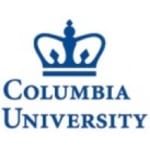
Columbia is a private, Ivy League, research university in upper Manhattan. It was founded in 1754. It’s the oldest college in NY state, and the fifth institution of higher learning in America. Columbia is known for its selectivity, and accepts less than 6% of applicants. Over 30,400 students attend Columbia, which has a sparkling 6:1 student-to-faculty ratio. It’s especially known for its graduate schools, and offers a wealth of Master’s and Doctoral degrees. USNR ranks it 3rd among National Universities and 6th in Best Value Schools for 2019. In 2017-18 average graduate tuition and fees at Columbia are $46,956.
Columbia offers a Master’s in Sports Management. It requires 36 credits (12 3-credit courses). It’s geared towards training professionals to work in all aspects of the sports industry, and focuses on management skills in a global, analytical and digital context (students choose electives within these three concentrations). The program is offered on a part-time and full-time schedule (3-8 terms to complete). The program is intended for young professionals who want a career in sports, sports professionals that want to advance or pivot their career within the industry, or people entrenched in a career that want to switch to a career in sports.
- Homepage
- Graduation Rate: 95%
- Retention Rate: 97%
2) Northwestern University
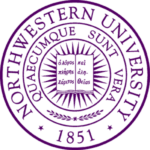
NU is a private, research university in Evanston Illinois. Northwestern has twelve schools and colleges that offer 124 undergraduate degrees and 145 graduate/professional degrees. It was founded in 1851. Over 50 startup companies have been founded based on technologies created and developed at Northwestern. Currently the school serves over 22,000 students attend Northwestern, which has a 6:1 student-to-faculty ratio. Average graduate tuition and fees at Northwestern in 2017-18 comes to $52,679. In 2019 USNR ranks it 10th in National Universities and 15th in Best Value Schools.
NU offers a Master’s in Sports Administration. It’s offered part-time, and is for professionals looking to start or expand a career in sports. In it you’ll learn to lead sports organizations, analyze data to make effective decisions, mitigate risk, create effective business plans and supervise revenue streams. It requires six core courses, three elective courses, a leadership course, and a capstone class or thesis project. Sample courses include Sports Marketing, Sports Research Methods, Organization of Sports, Sports Business, and Sports Public Relations, among many others.
- Homepage
- Graduation Rate: 94%
- Retention Rate: 98%
- This program offers online options.
3) Georgetown University

Georgetown is a private, Catholic research university headquartered in Washington, D.C. It was founded in 1789. Beginning as Georgetown College, it has grown to now offer students access to nine undergraduate and graduate schools. Georgetown is known for its stellar faculty, including former Secretary of State Madeleine Albright, former U.S. Ambassador to the United Nations Jeane Kirkpatrick, U.S. Agency for International Development administrator Andrew Natsios, National Security Advisor Anthony Lake, and CIA director George Tenet. It serves over 19,000 students and has a 11:1 student-to-faculty ratio. Georgetown has been ranked 22nd among National Universities for 2019, and has been frequently cited for its high selectivity. In 2017-18, average tuition and fees at Georgetown are $48,331.
Georgetown offers a Master’s in Sports Industry Management. It lets students work with sports professionals in top organizations as they build important communication, business, and leadership skills. It requires 30 credits, and can be completed in 1-5 years (full-time and part-time options are available). It’s designed to allow working professionals to complete it without interrupting their current career. Outside of the classroom the program gives students the opportunity to enter “internships, externships, travel abroad opportunities, and recruitment and networking events.” In class you’ll interface with experts and professionals from the U.S. Olympic Committee, Washington Nationals, Octagon, Washington Capitals, and the NFL Players Association, among other top sports organizations. Sample courses include Sports Marketing Strategy, Sports Business and Finance, and Applied Ethics in Sports.
- Homepage
- Graduation Rate: 95%
- Retention Rate: 96%
- This program offers online options.
4) University of Michigan
![]()
Michigan is a highly ranked public, research university in Ann Arbor, Michigan. It was founded in 1817, and currently serves over 46,000 students while providing an 11:1 student to faculty ratio. Michigan is known as a leading research university in the country, and has produced 25 Nobel Prize winners, 6 Turing Award winners and 1 Fields Medalist. The school offers more than 200 undergraduate majors, 100 doctoral programs, and 90 master’s programs. Average graduate tuition and fees for Michigan in 2017-18 are $22,696 for in-state students, and $45,484 for out-of-state students. In 2019 USNR ranked it 27th among National Universities.
Michigan offers a Master of Sport Management. It’s intended for students who want to study and work in sport studies, business/management, marketing, finance/economics, health sciences, and social sciences. Its curriculum deals with entrepreneurship, urban planning, finance, economics, diversity, social justice, corporate social responsibility, marketing (sponsorship, sales, and consumer behavior), law, globalization, and organizational behavior. Michigan has a great relationship with sport industry executives and exposes its students to them throughout the program. Sample courses include Legal Aspects of Sport, Financial Management for the Sport Industry, Strategic Management in Sport and much more. The program requires a minimum of 30 credit hours.
- Homepage
- Graduation Rate: 92%
- Retention Rate: 97%
5) Gonzaga University
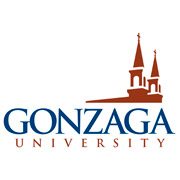
Gonzaga is a private, Roman Catholic university in Spokane, Washington. It was founded in 1887 by the Jesuits, and is one of 28 schools within the Association of Jesuit Colleges and Universities. It offers Bachelor’s, Master’s and Doctoral degrees through seven colleges, and degrees in 92 fields and 26 graduate programs. USNR ranks it 4th among Regional Universities West in their 2019 rankings. Gonzaga offers programs in Florence, Italy, or at other programs in Australia, Benin, British West Indies, China, Costa Rica, England, France, Japan, Kenya, Mexico, Spain, Zambia, and the Internet. Over 7,500 students attend Gonzaga, which has a 12:1 student-to-faculty ratio. Average graduate tuition and fees in 2017-18 are $16,845.
Gonzaga offers a Master’s in Sport & Athletic Administration. Students in it have interned with the Seattle Mariners, Baltimore Orioles, Washington Redskins, Cleveland Indians and other major sports organizations. In the program you’ll build skills in risk management, financial analysis, facilities management, media relations, and so much more. The program aims to take your passion for sports and give you the advanced leadership and management skills you need to reach supervisory sports administration positions. Sample courses include Research Methods and Statistics in Sport/Athletics, Sport & Athletics in Social Context, Ethical/Legal Aspects in Sport, among many others.
- Homepage
- Graduation Rate: 87%
- Retention Rate: 94%
- This program offers online options.
6) Southern Methodist University
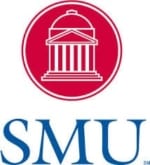
SMU is a private research university in Dallas. It was founded in 1911 by the Methodist Episcopal Church South. It conveys undergraduate, graduate and doctoral degrees through schools of Humanities and Sciences, Engineering, Arts, Education and Human Development, Theology, Business, and Law. Nearly 11,800 students attend SMU, which has a 11:1 student-to-faculty ratio. USNR ranks it 59th in National Universities and 113th in Best Value Schools in 2019. Average graduate tuition and fees are $46,800 in 2017-18.
SMU offers a Master of Science in Sport Management. The program builds research, analytical, and business communication skills in a sports context. You’ll also gain a foundation in business and finance that applies in and outside of the sports industry. The program is offered full-time, and can be completed in 12 months. Students will be taught by faculty who have held executive positions in professional leagues and teams, media and broadcasting, marketing and sponsorship, facilities and sports equipment and apparel. It features real world case studies, mentorships and internships in the sports industry. Sample courses include Sport Organizational Design, Sports Facility Management, Sports Law, and more.
- Homepage
- Graduation Rate: 81%
- Retention Rate: 91%
7) University of Miami
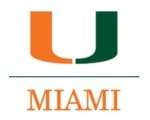
The University of Miami is a private, research university in Coral Gables. It was founded in 1925. Over 17,000 students attend the school, which has a 12:1 student-to-faculty ratio. In 2017-18 average graduate tuition and fees are $36,332. UM offers 116 undergraduate, 105 master’s, and 63 doctoral degree programs (59 are research/scholarship based), in addition to four professional areas of study. USNR ranks it 53rd in National Universities and 64th in Best Value Schools in 2019.
Miami offers a Master of Education in Sport Administration. It requires 30 credits and can be completed in 20 months. There are 10 courses, and each are offered in 7-week sessions. Students take one course at a time. Miami is an elite school within the sports industry due to its athletics programs (especially football). This program is run by faculty who are leaders and influencers within the sport industry. Sample courses include the Principles of Sports Marketing, Essential Leadership Skills in Sport, Fiscal Management in Sport Administration, Ethical Decision Making in Sport, and much more.
- Homepage
- Graduation Rate: 81%
- Retention Rate: 91%
- This program has online options.
8) University of Connecticut
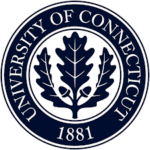
UConn is a public research university in Storrs, Connecticut, with several other campuses. It was founded in 1881. The school offers students 100 majors, eight undergraduate degrees, 17 graduate degrees and five professional degree programs, in addition to 87 different minors. Over 27,500 students attend the school, which has a 16:1 student-to-faculty ratio. In 2017-18, average graduate tuition and fees are $16,810 for in-state students, and $38,122 for out-of-state students. USNR ranks it 63rd in National Universities and 89th in Best Value Schools for 2019.
UConn offers an M.S. in Sport Management. It prepares students in theory, research and the practical applications of the field. Students either complete a thesis, internship or research project as part of this program, which impacts the courses and schedule structure of the program. The minimum credits required is 33. Sample courses include Principles and Methods in Educational Research, Sport Marketing, Sport in Society and Management of Sport Services.
- Homepage
- Graduation Rate: 83%
- Retention Rate: 94%
9) University of Florida
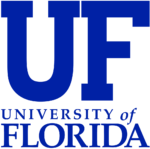
UF is a senior member of the State University System of Florida. It was established in 1853 in Gainesville, Florida. Nearly 52,700 students attend the school, which offers a 19:1 student-to-faculty ratio. UF is a public, sea-grant, space-grant, and land-grant research school with an incredible reputation. Some of the degree topics offered include: environmental management in agriculture and natural resources, health education, biology, entomology, industrial and systems engineering, and Latin. The University of Florida is also consistently ranked as one of the top-value schools in the country by sources like Princeton Review and Smart Money Magazine. In 2019 USNR ranks it 35th in National Universities and 91st in Best Value Schools. Average graduate tuition and fees are $12,737 for in-state students, and $29,302 for out-of-state students.
UF offers an M.S. in Sport Management. Students can take a non-thesis with Capstone Project option, or a thesis option. In the program you’ll learn about advanced concepts in the planning, organizing, leading and analyzing organizational goals of sports organizations. You’ll develop financial strategies, marketing skills, explore legal concepts and look at the internal and external factors that impact sports, among many other outcomes. Sample courses include Sport Sociology, Sport Marketing, Sport Finance, and Management and Leadership in Sport. The non-thesis track requires 36 credit hours, and the thesis option has 30 credits plus the thesis. This program must be completed within 7 years.
- Homepage
- Graduation Rate: 88%
- Retention Rate: 96%
- This program has online options.
10) Clemson University

Clemson is a public, research university based out of Clemson, South Carolina. It’s been classified as a “Doctoral university [with] highest research activity”. Clemson was founded in 1889, and is the second largest university in the state. Nearly 24,400 students attend Clemson, which has a 16:1 student-to-faculty ratio despite that large student body. Clemson is comprised of seven colleges: Agriculture, Forestry and Life Sciences; Architecture, Arts and Humanities; Business; Behavioral, Social and Health Sciences; Education; Engineering, Computing and Applied Sciences; and Science. USNR ranks Clemson 66th in National Universities in 2019. Average graduation tuition and fees in 2017-18 are $10,144 for in-state students, and $20,446 for out-of-state students.
Clemson offers a Master of Science in Athletic Leadership. It’s intended to give current and aspiring coaches and administrators, especially at the intercollegiate level, a degree based in the leadership, ethics and coaching development needed to succeed in modern athletics. This program can be taken by working professionals. Students take two classes each term, and can complete the program in two years. Topics covered include Athlete Psychology, Ethical Decision Making, Marketing and Finance of Intercollegiate Athletics, Student Athlete Development, and much more. Sample courses include Survey of Research Methods in Intercollegiate Athletics, Marketing and Communications Responsibilities in Intercollegiate Athletics, and Strength and Conditioning in Intercollegiate Athletics.
- Homepage
- Graduation Rate: 82%
- Retention Rate: 93%
- This program has online options.
11) Miami University-Oxford

Miami is a public research university in Oxford, Ohio. It was founded in 1809, and is one of the original eight Public Ivy schools. It offers students over 120 undergraduate degree programs and more than 60 graduate degree programs through 8 schools and colleges. Currently the school serves 19,700 students and has a 14:1 student-to-faculty ratio. USNR ranks it 96th in National Universities for 2019. In 2017,18 its average graduate tuition and fees are $13,812 for in-state students, and $30,860 for out-of-state students.
Miami offers an M.S. in Sport Leadership and Management. Its curriculum features sport psychology, sport sociology, sport developmental, and motor learning classes. The program prepares students for consulting, teaching, coaching, research, management, and programming in a number of contexts within the sports industry. Sample electives include Sport, Leisure and Aging, Gender and Sport, Counseling Theories and Practice, and Behavioral Approaches to Health Promotion and Disease Prevention, among many others. Students choose one of three Capstone Experience options, including thesis research, a research experience, or a practicum.
- Homepage
- Graduation Rate: 79%
- Retention Rate: 91%
12) Baylor University

Baylor is a private, Baptist university based out of Waco, Texas. It serves over 17,000 students, and has a 14:1 student-to-faculty ratio. Baylor was founded in 1845. Baylor offers certificates, in addition to Bachelor’s, Master’s and Doctoral degrees through 12 colleges and schools. In 2017-18 graduate tuition and fees at Baylor are $32,832. In 2019 USNR ranks it 78th in National Universities and 57th in Best Value Schools.
Baylor offers an MSEd in Sport Management. It was launched in 1985, and is a leading program in the field nationally. Students can expect small class sizes and instruction that develops strong relationships between your peers and faculty alike. The program requires 36 credit hours, and can be completed in 22-24 months. It features research, internship and work experiences. Graduates will be ready to work in professional, intercollegiate, interscholastic, community, for-profit and non-profit roles within the sports industry.
- Homepage
- Graduation Rate: 77%
- Retention Rate: 90%
13) Drexel University
Drexel is a private research university with three campuses in Philadelphia. Nearly 24,200 students attend Drexel, which has an 11:1 student-to-faculty ratio. It offers students access to over 70 undergraduate programs and more than 100 master’s, doctoral, and professional programs. The school was founded in 1891 by financier and philanthropist Anthony J. Drexel. A unique aspect of Drexel is the school offers students a co-op education program (co-op) in which they can get 18 months of paid, full-time work experience in the field they’re studying before graduating Drexel. Average graduate tuition and fees at Drexel are $33,996 for 2017-18. USNR ranks it at 102nd in the National Universities category for 2019.
Drexel offers a Master of Science in Sport Management. It gives students the skills and theoretical understanding of what goes into planning, designing, implementing, and evaluating sport programs, and helps them come up with solutions to problems in sport management. It can be taken part-time, over two years. Its main areas of emphasis are sport business, sport marketing, sport media and sport law. All students must complete a capstone, which can be either a practicum, research thesis, independent study or seminar.
- Homepage
- Graduation Rate: 71%
- Retention Rate: 89%
- This program has online options.
14) Texas A & M University

Texas A&M is a public research university headquartered in College Station, Texas. It was founded in 1876, and became part of the Texas A&M University System in in 1948. Over 67,900 students attend the school, which has a 21:1 student-to-faculty ratio. A&M confers certificates, undergraduate, graduate and doctoral degrees through 12 colleges and schools. In 2017-18 average graduate tuition and fees are $9,065 for in-state students, and $19,585 for out-of-state students. USNR ranks it 66th in National Universities and 44th in Best Value Schools in 2019.
A&M offers a Master of Science in Sport Management. It comes in thesis and non-thesis options, and aims to give students a new understanding of sport management through research and creativity. A minimum of 32 credit hours are required for the thesis option, and 36 credit hours are required for the non-thesis option. A&M does a very thorough job of letting students know exactly what is required from them to enter and complete this degree. Follow the link below to see the specs on it, and feel free to request more information from A&M directly to help you in your application process.
- Homepage
- Graduation Rate: 82%
- Retention Rate: 92%
- This program has online options.
15) Florida State University
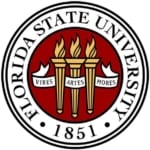
Florida State is a premier public school for sea-grant and space-grant research in Tallahassee. It was founded in 1851. The school is comprised of 16 colleges and over 360 programs of study that convey degree levels ranging from Associates through Doctorates. It’s known for its programs in criminal justice, sports management, law, business engineering, medicine, social policy, film, music, theater, dance, visual art, political science, psychology, social work, and more. U.S. News & World Report ranks FSU 70th among National Universities in its 2019 rankings. Over 41,300 students attend FSU, which has a 22:1 student-to-faculty ratio. Average graduate student tuition and fees for 2017-18 are $11,553 for in-state students, and $25,985 for out-of-state students.
FSU offers a Master’s in Sport Management. It’s designed to create the future leaders within the sports industry, and features a thesis and non-thesis track. In either track students are encouraged to pursue their specific interests within the sports industry through elective courses and/or their thesis work. The program helps students find internships in addition to other practical settings in which they can apply what they’ve learned. Graduates work in business, facility and event management, marketing and promotion, field research and much more.
- Homepage
- Graduation Rate: 80%
- Retention Rate: 94%
16) Seattle University
![]()
SU is a Catholic university in First Hill, Seattle, Washington. It was founded in 1891. The school offers 61 bachelor’s degree programs, 31 graduate degree programs, and 27 certificate programs, a law school and a doctoral program in education. In 2019 USNR ranks it 8th in Regional Universities Midwest. Nearly 7,300 students attend the school, which has an 11:1 student-to-faculty ratio. In 2017-18 its average graduate tuition and fees are $20,191.
Seattle offers a Master’s in Sport Business Leadership. The program requires 48 credits, offers evening classes, and can be completed in two years. According to SU, graduates have a 90% placement rate within 6 months of graduation. Its curriculum is equal parts sport business analytics and leadership development. Students have access tot he thriving sports city of Seattle, and can access national and local internship, work, and networking opportunities through the program. Sample courses include Developing Leadership in Sport, Sport Business Ethics, and Research Methods in Sport Management.
- Homepage
- Graduation Rate: 75%
- Retention Rate: 84%
17) Springfield College

Springfield is a private college in Springfield, Massachusetts. It was founded in 1885. It offers undergraduate, post-graduate, and doctoral degrees. Over 3,200 students attend Springfield, which offers a 12:1 student-to-faculty ratio. Average graduate tuition at Springfield is $30,725 in 2017-18. USNR ranks the school 28th among Regional Universities North and 19th in Best Value Schools in 2019.
Springfield offers a Master’s in Sport Management and Recreation. Its goal is to prepare graduates to manage sport and recreation facilities and programs, working in sports administration, recreation management, and therapeutic recreation management (students can choose to focus in these distinct disciplines as well). The curriculum tackles management administration, operations, maintenance, event management and research. Students will be paired with a 400-hour internship to put what they’ve learned into practice as part of this program.
- Graduation Rate: 74%
- Retention Rate: 87%
18) University of Massachusetts-Amherst

UMass Amherst is a public research university in Amherst, Massachusetts. It was established in 1863. The school offers Bachelor’s, Master’s and Doctoral degrees in 111 undergraduate, 75 master’s and 47 doctoral programs through nine schools and colleges, and is a member of the prestigious Five College Consortium in Massachusetts. UMass Amherst has been recognized by the Carnegie Foundation as a university with the highest level of research activity. Over 30,300 students attend the school, and it has a 18:1 student-to-faculty ratio. USNR ranked it 70th among National Universities and 79th among Best Value Schools in their 2019 ranking. Average graduate tuition at UMass Amherst is $15,367 for in-state students, and $29,991 for out-of-state students.
UMass Amherst offers an MS in Sport Management. Students can choose to earn the MS, or work towards a dual MBA/MS degree. Sample courses include Sport Marketing, Sport Finance & Business, Organizational Behavior & Development, among many others. The program requires 35 credit hours, and there are opportunities for internships, applied marketing research, and proposed independent study. The program also boasts impressive faculty and an alumni network that volunteers to help students within the program.
- Homepage
- Graduation Rate: 77%
- Retention Rate: 91%
- This program offers online options.
19) Temple University

Temple is a state-affiliated research university based in Philadelphia, Pennsylvania. It was founded in 1884. Nearly 40,000 students attend the school, which offers a 14:1 student-to-faculty ratio. Temple is especially known for its professional programs in sports management, law, medicine, podiatry, pharmacy, dentistry, and architecture. In 2019 USNR ranks Temple 93rd in Best Value Schools and 106th in National Universities. Average graduate tuition and fees are $17,054 for in-state students, and $23,048 for out-of-state students.
Temple offers a Master of Science in Sport Business. It features evening courses to fit your schedule, individualized professional development and coaching, and 100% internship placement. You’ll learn to think analytically/critically about issues facing professional sports teams, college athletics and sport business in areas like sport analytics, sales and promotion and event and venue management. Students choose from four concentrations: Sport Marketing and Promotions, Sport Analytics, Recreation and Event Management, and Athletics Administration. Sample courses include Sport Finance and Economics, Legal Issues in Sport and Recreation, Sport Marketing, and much more.
- Homepage
- Graduation Rate: 71%
- Retention Rate: 90%
20) University of San Francisco

USF is a Catholic university in San Francisco, California. It was founded in 1855. It offers over two dozen majors, and prioritizes service-learning courses and volunteer work. In 2019, USNR ranks it 96th among National Universities, and 61st among Best Value Schools. Over 11,000 students attend the school, which has a 13:1 student-to-faculty ratio. In 2017-18, average graduate tuition and fees are $24,260.
USF offers an MA in Sport Management. Students can earn the degree in 23 months by taking classes one evening each week. The program features hands-on training from faculty who are industry experts, and a host of guest speakers. Students will participate in over 1,000 hours of internship experience with teams, universities and agents worldwide. Sample courses include Managing Sport in a Dynamic Environment, Leadership and Critical Thinking in Sport Management, Sport Law, Sport Economics and Finance, and much more.
- Homepage
- Graduation Rate: 77%
- Retention Rate: 85%